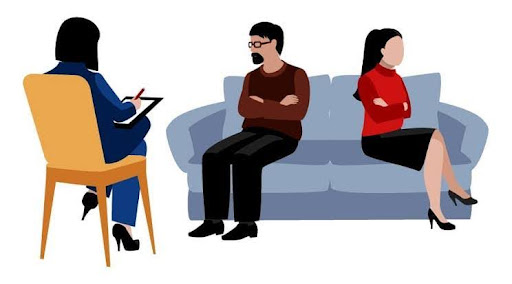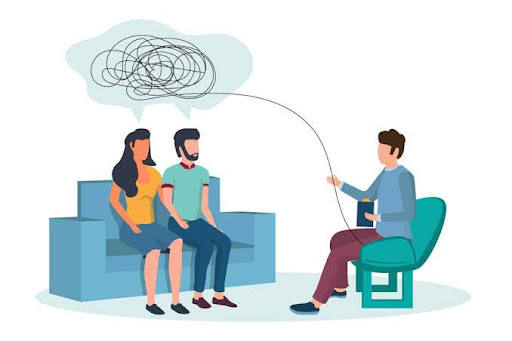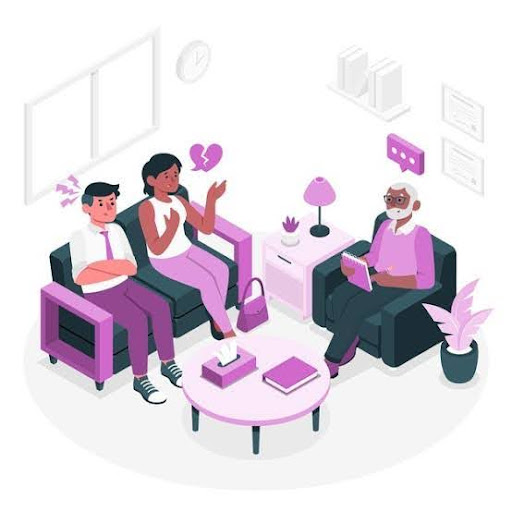Introduction
In the journey of matrimony, a relationship counselor can be an invaluable resource. Their role extends beyond just offering advice; they provide support, tools, and strategies to help couples navigate the complexities of married life. Here’s how a relationship counselor can play a crucial role in maintaining and enriching a marriage:

1. Facilitating Communication
Effective communication is the cornerstone of a healthy marriage. A relationship counselor helps couples develop better communication skills, ensuring that both partners feel heard and understood. They teach techniques for expressing thoughts and feelings constructively, which can prevent misunderstandings and conflicts.
2. Addressing Conflict Resolution
Conflicts are inevitable in any marriage, but how couples handle them can make a significant difference. Counsellors assist couples in learning healthy conflict resolution strategies. They guide partners in resolving disagreements respectfully and finding mutually acceptable solutions.
3. Providing Objective Perspective
A relationship counselor offers an impartial perspective on issues within the marriage. They help couples view problems from different angles and provide unbiased feedback. This objective viewpoint can be crucial in identifying underlying issues and finding effective solutions.
4. Enhancing Emotional Intimacy
Emotional intimacy is vital for a strong marriage. Counselors work with couples to deepen their emotional connection, helping them understand each other’s needs and vulnerabilities. This enhanced intimacy strengthens the bond between partners and fosters a deeper sense of closeness.

5. Navigating Major Life Changes
Life changes such as having children, career shifts, or relocating can impact a marriage. Relationship counselors help couples navigate these transitions, offering support and strategies to adapt and maintain a strong relationship during times of change.
6. Healing from Past Wounds
Past experiences and unresolved issues can affect current relationships. A counselor helps couples address and heal from past wounds, enabling them to move forward without letting old issues overshadow their present and future.

7. Improving Relationship Skills
Counselors provide couples with tools and techniques to improve their relationship skills. These may include setting goals, managing stress, and building trust. By enhancing these skills, couples can create a more fulfilling and resilient marriage.
8. Strengthening Commitment
A relationship counselor can help couples reinforce their commitment to each other. Through counseling, partners revisit their vows and values, and work on ways to strengthen their dedication and partnership.

9. Supporting Individual Growth
Individual growth and self-awareness are important for a healthy relationship. Counselors support each partner’s personal development, which in turn benefits the marriage. By addressing individual concerns and goals, couples can contribute more positively to their relationship.
10. Providing Pre-Marital Guidance
Counselors also play a crucial role before marriage, offering pre-marital counseling to help couples prepare for a lifelong commitment. This guidance includes discussing expectations, setting goals, and addressing potential challenges.
11. Offering Crisis Intervention
In times of crisis or marital distress, counselors provide immediate support and intervention. They help couples navigate through difficult periods, offering strategies to cope with stress and maintain a healthy relationship.
12. Fostering Long-Term Satisfaction
Counselors work with couples to build a foundation for long-term satisfaction and happiness. They help partners develop strategies to sustain a fulfilling and balanced relationship, ensuring that the marriage thrives over time.
Conclusion
In summary, a relationship counselor plays a vital role in supporting and enhancing a marriage. By providing tools, techniques, and guidance, they help couples improve communication, resolve conflicts, and deepen their emotional connection. Their support can be instrumental in navigating both everyday challenges and major life changes, contributing to a stronger and more resilient marriage.

